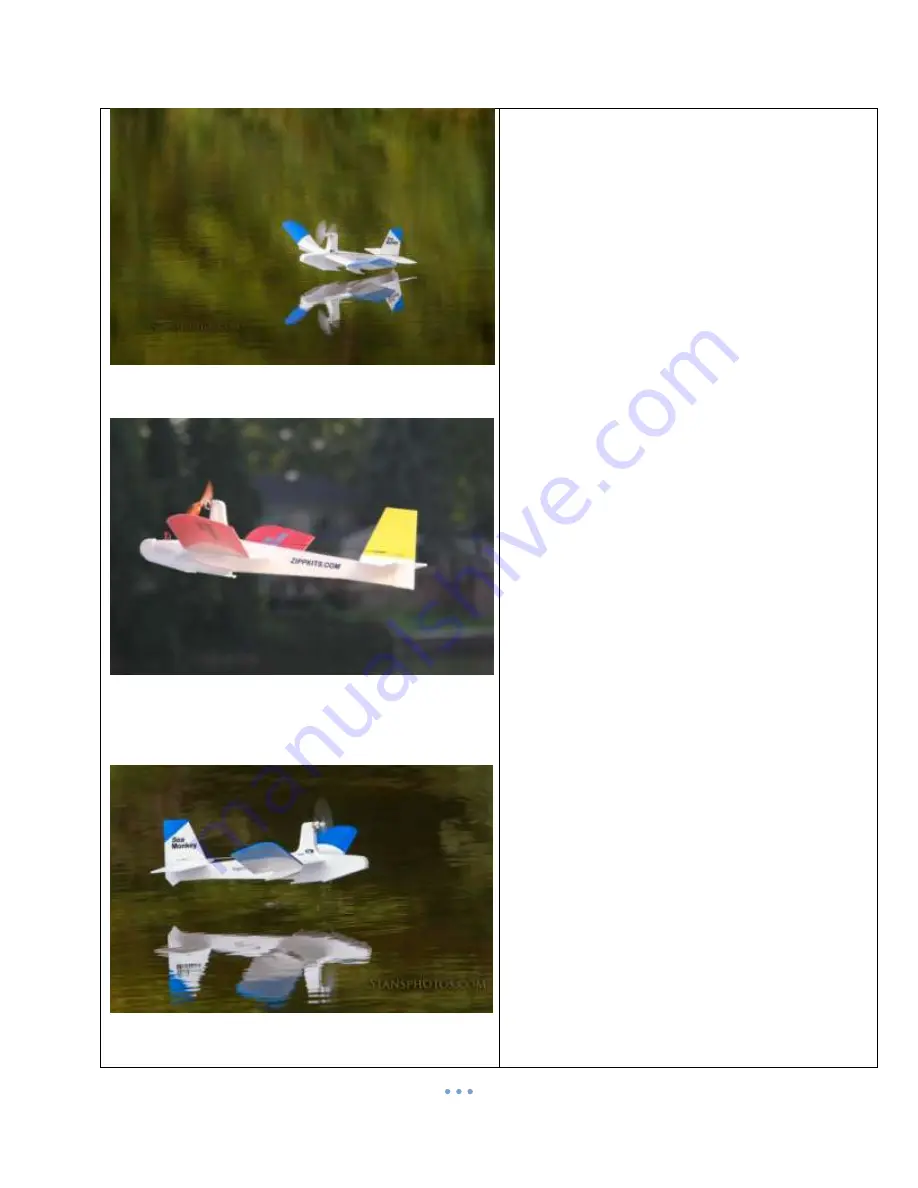
21
Water Takeoff
Do not fly off water if there is any wind more
than about 1 or 2 mph…
Set the plane in the water facing into the wind. If
the wind is more than a whisper, you may not be
able to turn into it.
Use lots of rudder and short blasts of high throttle
to get the nose into the wind if needed.
Slowly advance the throttle while using the
rudder to keep the nose pointed into the wind.
You should not need much more than about half
throttle to get off the water.
The plane will lift off the water when it is ready.
There is no need to haul it off the water.
Takeoffs into the wind will be very short (5-10
feet).
Water Landing
The water landing is the same as any other. The
plane does not care if you carry some speed, or
just plop it in.
Landing with a little speed does make for a pretty
landing.
If there is any wind, it may be wise to not try to
turn around. Remember, this plane only weighs 8
ounces. If any wind gets under the wing as you
turn 90 degrees, it will flip. This is not something
you want with a seaplane…
Summary of Contents for Sea Monkey
Page 4: ...4 5mm ESP foam parts ...
Page 5: ...5 ...

















